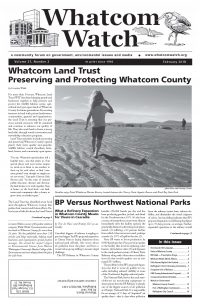by Lyle Harris Sr.
This section is devoted to studying the local impacts of specific issues the Trump Administration or Republican Congress will propose.
Donald Trump used the term “shithole” countries then denied he had said it. But Sen. Dick Durbin (D-IL), said Trump used “hate-filled, vile and racist” language in the meeting, while others said he didn’t use the above term. Then two GOP senators, Tom Cotton of Arkansas and David Perdue of Georgia, said, indeed, it was not “shithole,” but “shithouse countries.”
Many of us were really offended to think the president of the United States would refer to dark-skinned people in poor countries in racist terms like “shithole.” But, thank heavens, that’s now cleared up.
And what can we conclude about Trump’s favorite comment, “fake news,” and who believes it? Masha Gessen, writing in The New Yorker, in “Fighting Fake News Is Not the Solution,” says studies question whether the majority of people believe the distortions and lies of fake news. He said research indicates that the American public is not divided into two “equal partisan bubbles.” Rather, he finds that “most Americans share a fact-based view of reality.” The evidence is that many polls on the GOP tax bill showed that voters opposed it based on accurate information. In short, “they believed that it would benefit the rich,” he wrote.
“Members of Congress who voted for the tax bill, which will disproportionately benefit the very wealthy and will gut Obamacare, may be justified in assuming that they can afford to make their donors happy at the expense of their voters: partisanship and gerrymandering, they reckon, will keep their seats safe. In other words, an informed public is a necessary condition of democracy, but not a sufficient one. Democracy may indeed die in darkness, but light is no guarantee that it will survive,” Gessen concluded.
Wolff’s Fire and Fury Reviewed
A number of writers have reviewed Michael Wolff’s best-selling book, “Fire and Fury,” and this one below sums up many of the key criticisms of Trump.
Critics have found inaccuracies in the book and consider it in need of editing.
Michael D’Antonio, author of “Never Enough: Donald Trump and the Pursuit of Success,” reviewed “Fire and Fury” in CNN’s online opinion section. He supports much of Wolff’s book and argues that as a “super-salesman,” Trump was “amusing,” but as president “it is both frightening and dangerous.” D’Antonio wrote, among other comments:
“Trump often fails to deal with the subject at hand, preferring to tell and retell anecdotes and stories that sound rehearsed. (He did this with me, many times.)”
“Trump is bored by briefings and uninterested in details. (He has long shown this trait.)”
“Trump demands extreme personal loyalty. (Also a Trump hallmark.)”
“Trump’s leadership has created a ‘battle royale environment’ with White House factions in constant conflict. (Consider the news of the past year.)”
“Trump believes ‘expertise’ is ‘overrated.’ (He has said so to me.)”
“Sadly, Wolff’s reporting on the disparaging things the President says about women and his effort to understand the appeal of white supremacy also seem true to the man.”
He also commented that Wolff’s impression of Trump is that he’s “ill-suited for the world’s most important job,” and his top officials refer to him in disparaging terms, such as a “dope,” a “moron” and “dumb as sh-t.” He adds, “These points all seem credible.”
At the same time, D’Antonio’s says the book is “so speculative” that Trump’s supporters can pick it apart, and that will “diminish the book’s impact and, ultimately, do a disservice to the historical record.” He adds that “Fire and Fury” “is true to both the man and what we have experienced, together, since he campaigned and then took office.”
As of Jan. 10, Wolff’s book had sold 29,000 copies and was expected to continue as a best seller for some time.
Can the President Change Libel Laws?
“Our current libel laws are a sham and a disgrace and do not represent American values or American fairness,” President Trump commented in response to Wolff’s “Fire and Fury.” It was a typical remark from a person who knows little about the U.S. Constitution, or as it is interpreted by the U.S. Supreme Court.
First Amendment lawyers were quick to point out that Trump has little power to modify those laws, barring a Supreme Court appeal or constitutional amendment. Libel laws come from the states, where Trump, as president, has no direct influence. And they must adhere to U.S. Supreme Court rulings that set the standard of interpretation of libel laws.
A 1964 Supreme Court decision, New York Times v. Sullivan, and its following opinions set the standard that libel cases must follow. In short, few libel suits have been filed in many years, because the concept is that anything that involves public discussion has a high benchmark to overcome, while private cases with a lower standard rarely occur. And, of course, the cost of proceeding with a libel case is exorbitant with little chance of winning.
The New York Times case was considered against the background of a profound national commitment to the principle that debate on public issues should be uninhibited, robust and wide-open, and that it may well include vehement, caustic, and sometimes unpleasantly sharp attacks on government and public officials. The exception that is needed to win a libel suit is “actual malice,” meaning reckless disregard for the truth.
Since public figures — especially the president who is the nation’s largest public figure —have the ability to respond to comments that may attack them, they have little ability to win a suit. It is for the public to decide who is right or wrong, not the Court.
Non-public persons — private persons — need to prove negligence, the failure to exercise ordinary care. Such suits are rare.
For Further Reading
https://www.politico.com/story/2018/01/15/trump-shithole-lindsey-graham-meeting-340617
https://www.newyorker.com/news/our-columnists/fighting-fake-news-is-not-the-solution
New York Times Co. v. Sullivan | US Law | LII / Legal Information Institute
https://www.law.cornell.edu/supremecourt/text/376/254
___________________________________
Lyle Harris Sr, a former reporter in Washington, D.C., is Journalism Professor Emeritus, Western Washington University





























